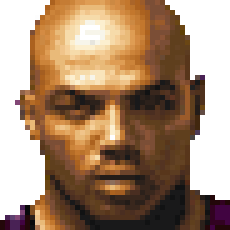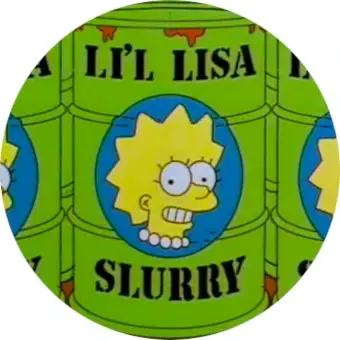So recently there has been a lot of debate on AI-generated art and its copyright. I’ve read a lot of comments recently that made me think of this video and I want to highly encourage everyone to watch it, maybe even watch it again if you already viewed it. Watch it specifically with the question “If an AI did it, would it change anything?”
Right now, AI-generated works aren’t copyrightable. https://www.artnews.com/art-news/news/ai-generator-art-text-us-copyright-policy-1234661683/ This means you can not copyright the works produced by AI.
I work in games so this is more seemingly relevant to me than maybe it is to you. https://techcrunch.com/2023/07/03/valve-responds-to-claims-it-has-banned-ai-generated-games-from-steam/ Steam has outright said, earlier this month, that it will not publish games on its platform without understanding if the training data has been of images that aren’t public domain.
So right now, common AI is producing works that are potentially copyright-infringing works and are unable to be copyrighted themselves.
So with this information, should copyright exist, and if not, how do you encourage artists and scientists to produce works if they no longer can make a living off of it?
Artists and scientists can make a living of their work without copyright. CC BY SA and creative commons in general doesnt prevent you from selling your work and people can support art/science without it being behind paywalls. We need to move to a culture where we don’t try to enforce everything with the threat of jail/punishments and move to a culture where we support things we love because we want the creators to be able to continue creating without worry
Artists and scientists can make a living of their work without copyright. CC BY SA and creative commons in general doesnt prevent you from selling your work and people can support art/science without it being behind paywalls.
Honestly, show me a large-scale work that was CC BY SA that made money. A book, movie, or game that was funded only by those donating. They are extremely rare. Especially as I know a few people who have released GPL, freeware, and CC BY SA games and have made far less than what they spent on the project. It doesn’t prevent you from trying to ask for what are essentially donations but I can tell you with certainty you get far less money asking for donations than you do selling.
We need to move to a culture where we don’t try to enforce everything with the threat of jail/punishments and move to a culture where we support things we love because we want the creators to be able to continue creating without worry
I absolutely agree, just don’t take away artists’ ability to live first. Move towards that culture first, then get rid of the tools that currently make artists money. Copyright, right now, is almost the sole mechanic in society that allows people to make money off their art on a real scale.
How does copyright currently help small artists? They sue someone for violating their copyright? You dont need to copyright your game to sell it on steam, itch, etc.
You absolutely need copyrights to sell your game on Steam or itch. The copyright doesn’t need to be actively registered but that’s because you have implicit copyright to the things you create. That said you still need copyright and it’s why Valve is no longer selling games with AI-generated content. Because they can’t prove the content they are selling belongs to the people they are selling it on the behalf of.
Copyright helps small artists by protecting them. You can easily take someone to small claims. Lawyers work pro bono if they are confident in the case. Copyright helps by enforcing that what small artists make is truly theirs. I was working on a small indie game called Squad in 2016 in which someone stole our game assets. A simple notice from our retainer lawyer did the trick.
deleted by creator
A lot of people misunderstand the purpose and implementation of copyright.
To make things even more confusing, most people only understand the US version of copyright. The US has worked really hard to get the rest if the world to align their copyright law with the US, but they’re all subtly, and sometimes not so subtly, different, even before you get to the different legal systems used to interpret and implement copyright law.
The first thing is: copyright is about the right of a human creator to control how a copy of their work is made available (publicly in some countries, any in others) for a limited time. In some places that right can be temporarily or permanently assigned or sold to someone else.
So when it comes to AI, one group argues that unless the rights holder licenses the work to be part of a training set, it’s not allowed to be part of a training set.
Another group says that it doesn’t matter; if the human creating the training set got the work legitimately, they can use it to train a model.
The models themselves do not contain any copyrighted material and so are outside the discussion.
Copyright is flexible; for music, we have different copyright rules for recording, reproducing, and performing music for personal or public consumption, with different copyright for music and lyrics and associated video.
This could also be applied to AI, with training models being a new “recipient” of copyrighted content. We could enshrine in law how this can be done legally. But so far, we haven’t, so it falls back to “is this fair use?” and “are different copyright permissions needed when a human is not consuming the work?”
The end bit, that AI created works aren’t copyrightable, is already settled. However, any work a human does to tweak or select AI generated content, if it is itself creative, is copyrightable.
So yes, copyright should exist. People need to re-learn what it actually is though, and additions may be required to the laws in order to enable AI generated art to promote valuable skills and knowledge.
Right now, AI-generated works aren’t copyrightable. https://www.artnews.com/art-news/news/ai-generator-art-text-us-copyright-policy-1234661683/ This means you can not copyright the works produced by AI.
…
So right now, common AI is producing works that are potentially copyright-infringing works and are unable to be copyrighted themselves.
This kind of judgement is pure symbolic politics, because it’s completely unenforceable and I’m confused why you didn’t mention it. No one can prove if a piece of art is AI made and no one has to admit it. So yes, AI art can be copyrighted, just not officially as AI art, but it certainly will be and likely already is as long as there’s a human ‘stand in’.
There’s a huge gulf of difference between a matter of fact and a matter of law.
No one can prove if a piece of art is AI made and no one has to admit it.
There are tools that are being used to attempt to detect if a piece of work is AI-generated. If those tools say something was, it’s then on you to prove that you hand-created it. Even some artists are already having issues because things “look” AI-generated. The onus is on the creator to prove they have the copyright when dealing with copyright infringement.
So realistically, if you make some AI-generated content, I steal it, what do you do? How do you stop me from using your content?
Even if there were tools that can dictate what is AI-generated and what not, they’d have to rely on a pattern, or on an artifact from AI-generated imagery (which, as far as I know, does not exist), and that is what can be used as proof, not the result of the tool itself being used.
The requirement of proof is on the one making the lawsuit. So if you generate AI content and I steal it, you must prove you own the copyright. With AI-generated content, you do not own the copyright. I can take it without issue.
But then, it begs the question, how would you prove it’s an AI work? For all anyone knows, it’s my art, I made it, it’s undistinguishable from what I could make. What the court will see is, I submitted that art in the Internet, you take that, I sue you for copyright, you argue it’s an AI work, and the Court will request you to prove it really is an AI work, and perhaps launching an investigation on me to see whether I really made the AI artwork.
So realistically, if you make some AI-generated content, I steal it, what do you do? How do you stop me from using your content?
Whose content is it? What human person holds the copyright?
In that case, if it’s AI-generated content using a training set from the public domain, the content is generated initially as public domain. Adding changes to that, the changes are not public domain. So you’d have to prove that you changed it and that your work on the AI content was transformative, not derivative. But that’s my point, in that case, there is no one that holds the copyright.
Whoever claims the copyright first, holds it.
The only difference is that up to now there was a very low chance of “collisions” between two humans creating the exact same piece of art at the same time, while now a piece of AI art can be fully replicated given a model, a prompt, and a seed… but in practice, there is still a very low chance of two people randomly happening to use exactly the same model, prompt, and seed… so we’re back to square one: whoever claims it first, holds it.
Just remember to claim your
AI generatedhuman-made art before someone else does.Claiming it doesn’t make it so.
Right now, it kind of does. Like if you took someone else’s work and claimed it as your own: unless they can prove it’s theirs, first one to claim it gets to own the copyright.
Unfair? You bet. There’s things like SafeCreative that has been running for many years (I used to be part of a precursor to that) or even register it as an NFT to have a proof of precedence.








